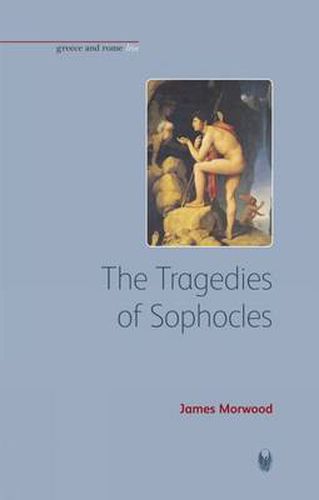Readings Newsletter
Become a Readings Member to make your shopping experience even easier.
Sign in or sign up for free!
You’re not far away from qualifying for FREE standard shipping within Australia
You’ve qualified for FREE standard shipping within Australia
The cart is loading…






This book provides separate discussions of each of Sophocles’ seven plays: Ajax , Women of Trachis , Antigone , Oedipus the King , Electra , Philoctetes and Oedipus at Colonus . It sets these between an essay that outlines modern approaches to Greek tragedy and a final chapter that spotlights a key moment in the reception of each work. Focusing on the tragedies’ dramatic power and the challenges with which they confront an audience, Morwood refuses to confine them within a supposedly Sophoclean template. They are seven unique works, only alike in the fact that they are all major masterpieces. The chapter on reception (the way Sophocles’ tragedies have been received and re-interpreted by later generations) deals with Milton’s Samson Agonistes , the first Cambridge Greek play ( Ajax ), the Strauss/Hofmannsthal opera Elektra , Anouilh’s Antigone , Pasolini’s film Edipo Re , Seamus Heaney’s The Cure at Troy (Philoctetes) and Martin Crimp’s Cruel and Tender (Women of Trachis). This book assesses each of Sophocles’ tragedies as a unique entity; includes a critical survey of modern approaches to Greek tragedy; and focuses on reception of Sophoclean tragedy through the ages - a key concern of modern classical studies courses.
$9.00 standard shipping within Australia
FREE standard shipping within Australia for orders over $100.00
Express & International shipping calculated at checkout
This book provides separate discussions of each of Sophocles’ seven plays: Ajax , Women of Trachis , Antigone , Oedipus the King , Electra , Philoctetes and Oedipus at Colonus . It sets these between an essay that outlines modern approaches to Greek tragedy and a final chapter that spotlights a key moment in the reception of each work. Focusing on the tragedies’ dramatic power and the challenges with which they confront an audience, Morwood refuses to confine them within a supposedly Sophoclean template. They are seven unique works, only alike in the fact that they are all major masterpieces. The chapter on reception (the way Sophocles’ tragedies have been received and re-interpreted by later generations) deals with Milton’s Samson Agonistes , the first Cambridge Greek play ( Ajax ), the Strauss/Hofmannsthal opera Elektra , Anouilh’s Antigone , Pasolini’s film Edipo Re , Seamus Heaney’s The Cure at Troy (Philoctetes) and Martin Crimp’s Cruel and Tender (Women of Trachis). This book assesses each of Sophocles’ tragedies as a unique entity; includes a critical survey of modern approaches to Greek tragedy; and focuses on reception of Sophoclean tragedy through the ages - a key concern of modern classical studies courses.